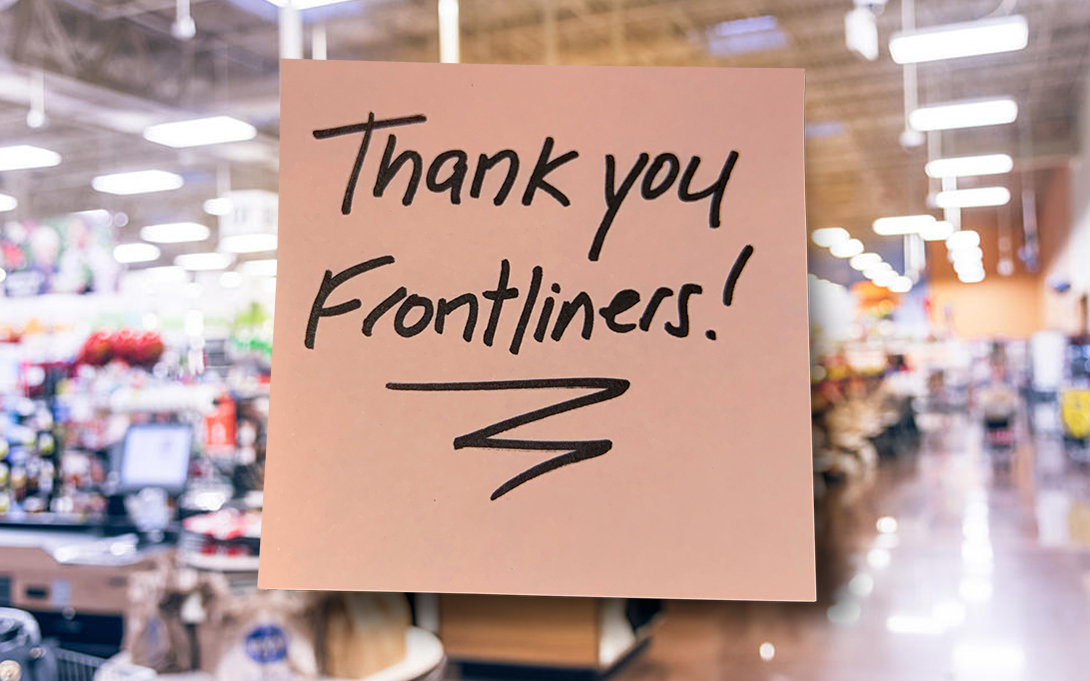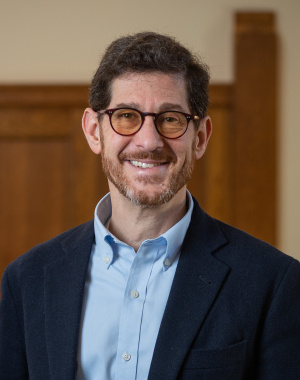
By Daniel Rivkin
When the state of Michigan issued its COVID-19 stay at home order in March 2020, Youth Policy Lab (YPL) Data and Policy Fellow Ava Attari found herself in the middle of an ambitious state program. The thousands of workers who had to remain on the job redefined the traditional perception of “frontline worker”—first responders or healthcare workers—and expanded to many different areas that were essential to the functioning of the economy, including workers in grocery stores, trucking and delivery, utilities, and sanitation.
Michigan Governor Gretchen Whitmer wanted to show the state’s appreciation for those workers, and quickly devised “Futures for Frontliners,” offering free in-district community college tuition to those who had worked during the state’s COVID-19 shutdown from April 1–June 30, 2020. Immediately rolling out the ambitious program required a nimble response from state agencies, including the Michigan Department of Labor and Economic Opportunity (LEO). Attari had been working with LEO on other projects, and became a part of the core team that made Frontliners happen.
Brandy Johnson (MPP ‘09), now president of the Michigan Community College Association, was also working with LEO when Frontliners was launched. “It was exactly the right thing to do to show gratitude for these individuals. And having that extra capacity with Ava within the department really allowed us to stand this up quickly,” she says.
Attari had been one of the first two YPL data and policy fellows. Now in its fourth year, the program counts four current fellows who provide dedicated support to the State of Michigan through the placement of early-career, master’s-level, policy professionals in administrative agencies. All fellows are currently funded through various foundations that have a unique interest in advancing evidence-based policymaking. They are hired as fulltime U-M employees for two years, and work across several state government agencies, including the Michigan Departments of Health & Human Services, Corrections, Labor & Economic Opportunity, and the State Court Administrator’s Office.
Andrea Plevek, YPL executive director, says the program has proven itself over and over again as a great opportunity for both the fellows and the institutions they assist. The fellows come from many backgrounds, including public policy, social work, information science, and public health.
“The program has gained traction with our state partners to an incredible degree and we’re excited to see it continue to grow. We’re hoping to leverage these strong partnerships to create a real pipeline of Ford School graduates who are bringing their skills to Michigan state government,” she says.
In the frenetic first days of establishing Frontliners, Attari was at the table for the creation of the program’s structure.
“We weren’t sure how it would go. But on day one, we had close to 20,000 applications!” Over 85,000 ultimately qualified and over 26,000 started their first semester with the scholarship in 2021. In recognition of her essential role, while she was still a fellow, Attari was asked to serve as permanent director of Futures for Frontliners.
As the steps to implement Frontliners wound down in 2021, a previously planned state scholarship initiative, Michigan Reconnect, was launched. She now serves as the program administrator of the Office of Sixty by 30 under LEO, which includes overseeing Frontliners and Reconnect.
Attari, whose mother got her college degrees later in life, says she has a special connection to the work the Office of Sixty by 30 is doing. “I know for my mom, I saw first-hand the impact a college degree had on her life, on her ability to open doors to employment and higher pay and for her own well-being.”
About the Youth Policy Lab
U-M’s Youth Policy Lab (YPL) uses rigorous evaluation design and data analysis to help community and government agencies make evidence-based decisions that strengthen programs and improve wellbeing for youth and families. Key projects impact all ages. They include an elementary math curriculum that closes achievement gaps, bringing mental health interventions to Detroit and school districts across the country, and improving how young people prepare for and succeed in early adulthood. YPL was co-founded by Brian Jacob and Robin Tepper-Jacob in 2016 and is a partnership between the Ford School and the Institute for Social Research.
More in State & Hill
Below, find the full, formatted fall 2022 edition of State & Hill. Click here to return to the fall 2022 S&H homepage.
